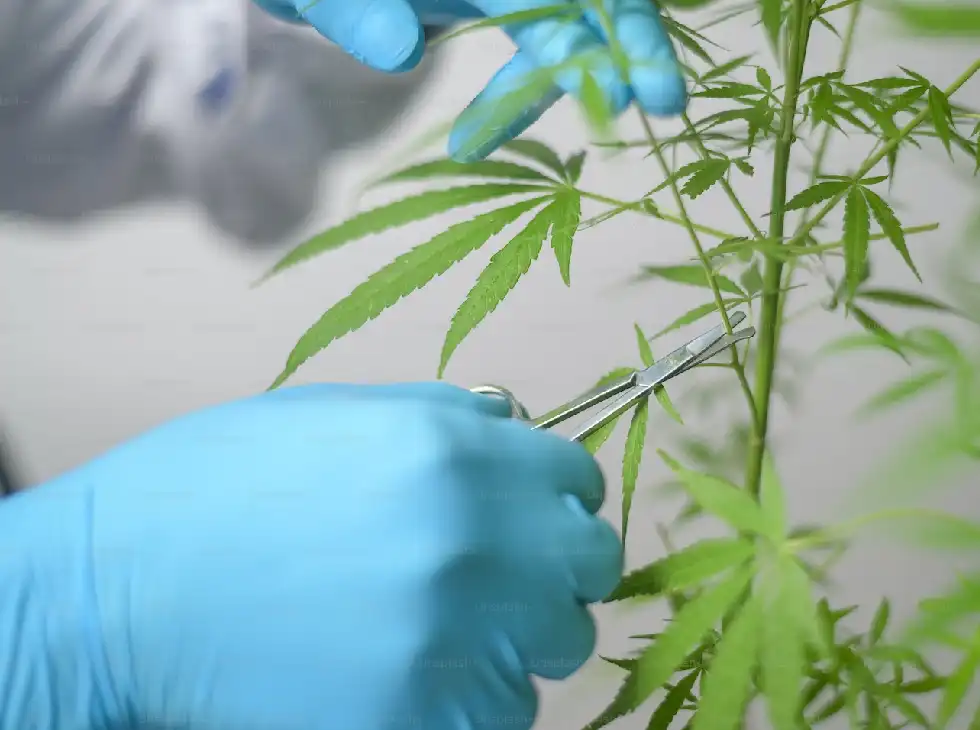CBD has taken center stage in the ever-expanding world of wellness, captivating the attention of health enthusiasts and those seeking natural alternatives. However, navigating the intricate web of CBD legality is imperative before embarking on your CBD journey. This comprehensive guide is designed to shed light on the subject, providing you with a roadmap to understanding CBD’s legal landscape. From the basics to expert insights, we’ll explore every facet to ensure you make informed decisions when considering CBD products.
Understanding CBD and Its Origins
Let’s start at the beginning. CBD, short for cannabidiol, is a compound found in the cannabis plant. There are two primary sources of CBD: hemp and marijuana. Hemp-derived CBD contains minimal levels of THC, the psychoactive compound responsible for the “high” associated with cannabis. On the other hand, marijuana-derived CBD can have higher levels of THC, leading to varying legal statuses. (1)
The 2018 Farm Bill and Hemp Legalization:
The legal landscape for CBD dramatically shifted with the passage of the 2018 Farm Bill in the United States. This groundbreaking legislation legalized hemp cultivation and hemp-derived CBD containing less than 0.3% THC. The bill effectively separated hemp from marijuana, paving the way for the widespread availability of CBD products. (2)
Hemp vs. Marijuana: CBD can be derived from both hemp and marijuana. Hemp-derived CBD is legal under federal law, while marijuana-derived CBD’s legality varies by state due to its higher THC content.

State-by-State Variations:
While the Farm Bill provided a federal guideline, the legal status of CBD isn’t a one-size-fits-all equation. States retain the authority to establish regulations, leading to a patchwork of laws that can differ significantly. Some states have embraced CBD wholeheartedly, while others have taken a more cautious approach, leading to variations in legality and availability. (3)
Federal vs. State Laws:
Navigating the overlap of federal and state laws can be like traversing a legal maze. While federal law permits hemp-derived CBD with minimal THC content, state laws can sometimes impose stricter regulations. This discrepancy can confuse consumers and sellers, underscoring the importance of staying informed about your state’s legal landscape.
Product Labeling: Accurate product labeling is crucial. CBD products must adhere to FDA guidelines and provide transparent information about CBD content, ingredients, and potential benefits.
Regulatory Agencies and Guidelines:
Regulatory agencies like the Food and Drug Administration (FDA) are pivotal in overseeing CBD products. The FDA’s role extends to ensuring CBD products’ safety, quality, and effectiveness. While the FDA has approved one CBD-based medication for epilepsy, it maintains caution regarding CBD supplements and foods.
CBD and the Controlled Substances Act:
Understanding CBD’s classification under the Controlled Substances Act is paramount. The 2018 Farm Bill explicitly removed hemp-derived CBD from the list of controlled substances, but the legal status of marijuana-derived CBD remains complex due to its higher THC content. It’s crucial to discern between the two to ensure compliance with the law. (4)
Sports and CBD: Some sports leagues have relaxed their rules on CBD use by athletes, while others still consider it a prohibited substance. Athletes should be aware of their league’s policies.
CBD’s Impact on Healthcare and Medicine
CBD’s potential therapeutic benefits have captured the attention of medical professionals and researchers alike. Studies suggest that CBD may relieve conditions ranging from chronic pain to anxiety. However, CBD’s legal status influences its integration into medical settings. Dr. Emily Adams, a medical practitioner, advises, “Medical professionals must be well-versed in local regulations when considering CBD as a treatment option.” (5)
Travel Considerations: Traveling with CBD can be tricky. While hemp-derived CBD is legal federally, checking airline and TSA regulations before flying with CBD products is advised.
Global Perspectives on CBD Legality
The legality of CBD extends beyond national borders, presenting diverse regulations and viewpoints worldwide. Different countries have adopted varying approaches, influenced by cultural attitudes, historical context, and political dynamics. Understanding the global landscape provides valuable insights into the evolving perceptions of CBD’s legality.
Navigating the Marketplace:
As the CBD market expands, consumers must exercise caution to ensure they’re purchasing legitimate and legal products. With a surge of offerings, it’s essential to prioritize transparency and quality. Dr. Lisa Miller, a consumer protection advocate, advises, “Look for products that undergo third-party testing and provide verifiable certificates of analysis. These safeguards ensure you’re getting what you pay for.”
Global Variations: CBD legality is not consistent internationally. Different countries have varying approaches, ranging from full legalization for medical and wellness purposes to strict regulations.
Future Outlook and Potential Changes:
The CBD landscape remains dynamic, with potential legislative changes on the horizon. As scientific research continues to uncover CBD’s potential benefits and challenges, laws may evolve to reflect this understanding better. Staying informed about possible shifts ensures that consumers and industry stakeholders can navigate future changes.
Conclusion
Arming yourself with knowledge about CBD’s legal landscape is an essential step before diving into the world of CBD products. Understanding the differences between hemp and marijuana-derived CBD, the impact of federal and state laws, and the evolving regulatory guidelines empowers you to make informed choices. With a rapidly evolving industry, staying informed is key to ensuring that your CBD journey is legal and beneficial. Remember, knowledge is the foundation of a rewarding CBD experience.
